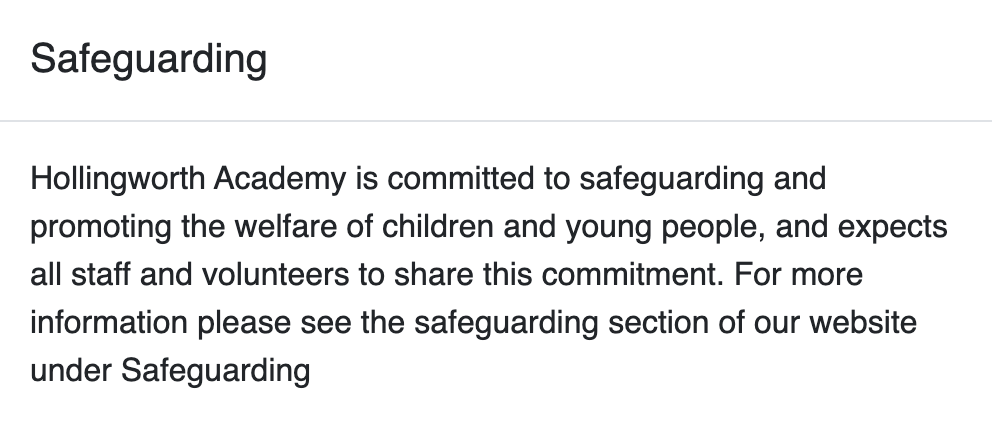Remote learning can inspire the students of Hollingworth Academy. We aim to create a teaching and learning experience that works remotely but matches the engaging experience we provide in the academy.
Our principles are:
1) VARIETY OF TASKS
At Hollingworth we firmly believe in enabling World Class learning so that “everyone excels everyday”. All subject areas use Google Classroom as our platform for delivering remote learning, but they are encouraged to link this with other inspiring online platforms such as Sparx Maths or Seneca in Science. It is the responsibility of subject areas to decide which approach suits the subject / topic / year group / ability group the most. We also encourage our subject areas to consider a variety of ways for students to submit their work such as PowerPoints, videos, voice recordings, images or animations.
2) PROMOTE INDEPENDENCE
The more opportunities we can provide for students to research and learn for themselves, the better chance we have of developing ‘independent learners’. Our ‘independent learners’ criteria is more important than ever and we need to try and move as many students towards this. For those students who are not yet ‘independent learners’, we must structure and scaffold this learning by providing clear success criteria and WAGOLLs, signposting resources online and providing some specific tasks to complete. Also, allowing students the opportunity to choose how to present their learning provides them with more independence.
3) CONTINUE EFFECTIVE PRACTICE IN TEACHING AND LEARNING
At Hollingworth, we have excellent classroom practice, and our remote learning should support this. Our remote learning fits in with our “World Class Learning Priorities”.
REVIEWING MATERIAL
- Knowledge Organisers capture the key knowledge, dates, processes, quotes and terminology for a topic – Quizlet and other virtual platforms are utilised to quiz this knowledge.
SEQUENCING CONCEPTS AND MODELLING
- Teachers to provide students with frequent ‘worked examples’ to reduce cognitive load.
- We find opportunities to model our thoughts utilising technology.
- We differentiate, where necessary, and provide scaffold.
STAGES OF PRACTICE
- Most lessons provide students the opportunity to apply their knowledge and understanding independently. We utilise opportunities for students to work on a more extended project over a longer period of time taking them beyond the classroom.
- Teachers to monitor students’ independent practice, provide timely feedback and teach explicit strategies for checking their own work. We attempt to build personal contact over time.
LITERACY
- Reading comprehension strategies (predict, clarify, question, summarise) are taught through texts weekly.
SKILLS AND VALUES
- Students’ success is celebrated. Resilience is the ‘norm’.
- Opportunities to celebrate the diversity of the academy and global community are identified and taken in lessons.
- Students are to be provided with opportunities to practise key skills such as problem-solving skills, leadership, teamwork, communication, research and organisation. Engagement is key and this is achieved through a variety of tasks. Cross-curricular skills are developed through working collaboratively.
4) PROVIDE STUDENTS WITH FEEDBACK TO ENCOURAGE AND MOTIVATE
Students need timely feedback. Students will lose confidence and motivation if they are not receiving encouragement and feedback about the quality of work, rather than just about task completion. Feedback will provide students with contact from the academy and allow them to continue to feel connected to the Hollingworth community. Instant feedback can be given via online quizzes, mostly on Google Classroom. Students should receive feedback which outlines how they have been successful and what they need to do to improve this task/future tasks, following submission of tasks/projects.
5) CELEBRATE STUDENTS’ SUCCESS
Subject areas need to consider ways to celebrate students’ successes and RISE points should be given. This can be via contact with home or social media.
6) UNDERPINNED BY READING
As an academy, we have made considerable developments in our approach to reading and literacy and this is having an impact on students’ reading ages and progress. Subject areas should look to set extension reading activities on a frequent basis. Students should be provided with wider reading which is linked to the subject/topic. Opportunities for wider reading around a subject should be highlighted to students, where appropriate.
